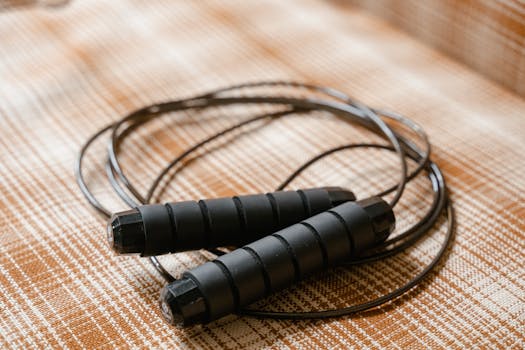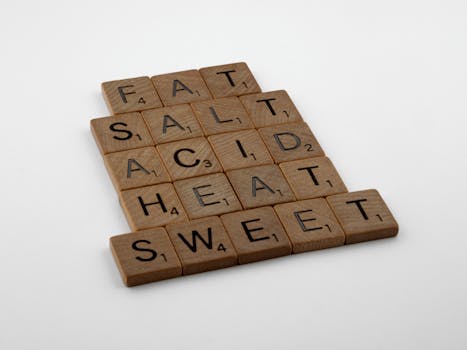Conquering Hormonal Heart Palpitations: A Menopause Guide
Nov 26, 2024
Menopause is a natural transition that every woman experiences, but it can also bring about a host of unexpected and sometimes unsettling symptoms. One such symptom that often catches women off guard is hormonal heart palpitations. These irregular heartbeats can be alarming and disruptive, leaving you feeling anxious and unsure of what to do. However, with the right knowledge and strategies, you can take control and manage these palpitations effectively.
Understanding Hormonal Heart Palpitations
What Are Heart Palpitations?
Heart palpitations are the sensation of a rapid, fluttering, or pounding heartbeat. They can feel like your heart is skipping beats or beating irregularly. While they may be concerning, heart palpitations are generally harmless for most people, especially if they are infrequent and short-lived.
The Link Between Menopause and Heart Palpitations
During menopause, the fluctuating levels of hormones like estrogen and progesterone can have a direct impact on the cardiovascular system. These hormonal changes can affect the electrical activity of the heart, leading to an increased risk of heart palpitations. Additionally, the physical and emotional stress associated with menopause can also contribute to the occurrence of palpitations.

Causes of Hormonal Heart Palpitations
While the exact causes of hormonal heart palpitations are not fully understood, several factors may contribute to their occurrence:
Hormonal Fluctuations: The fluctuating levels of estrogen and progesterone during perimenopause and menopause can disrupt the normal electrical signals that regulate the heart's rhythm, leading to palpitations.
Stress and Anxiety: The emotional and physical stress associated with menopause can trigger the release of stress hormones like cortisol and adrenaline, which can affect heart rate and rhythm.
Lifestyle Factors: Certain lifestyle factors, such as caffeine consumption, dehydration, and lack of physical activity, can increase the risk of heart palpitations.
Underlying Medical Conditions: In some cases, heart palpitations may be a symptom of an underlying medical condition, such as thyroid disorders, anemia, or heart disease.
Managing Hormonal Heart Palpitations
Lifestyle Modifications
Making simple lifestyle adjustments can go a long way in reducing the frequency and intensity of heart palpitations. Here are some effective strategies to consider:
Exercise Regularly: Regular physical activity can help regulate hormone levels, reduce stress, and improve overall cardiovascular health. Aim for at least 150 minutes of moderate exercise or 75 minutes of vigorous exercise per week, as recommended by the American Heart Association.
Practice Stress Management: Stress can exacerbate heart palpitations, so it's crucial to find healthy ways to manage it. Try techniques like meditation, deep breathing exercises, yoga, or engaging in hobbies you enjoy.
Limit Caffeine and Alcohol: Both caffeine and alcohol can trigger heart palpitations, so it's best to limit or avoid them, especially if you're prone to experiencing palpitations.
Stay Hydrated: Dehydration can contribute to heart palpitations, so make sure to drink plenty of water throughout the day.
Dietary Considerations
What you eat can also play a role in managing hormonal heart palpitations. Consider incorporating the following into your diet:
Magnesium-rich Foods: Magnesium is a mineral that helps regulate heart rhythm. Good sources include leafy greens, nuts, seeds, and whole grains. You can also consider taking a magnesium supplement if your dietary intake is insufficient.
Omega-3 Fatty Acids: These healthy fats found in fatty fish, walnuts, and flaxseeds can help reduce inflammation and support cardiovascular health.
Potassium-rich Foods: Potassium helps regulate heart function and can be found in foods like banana

s, sweet potatoes, and avocados.
Hormone Therapy and Supplements
In some cases, hormone therapy or specific supplements may be recommended to help manage hormonal imbalances and alleviate heart palpitations. However, it's essential to consult with your healthcare provider before starting any new treatment or supplement regimen.
When to Seek Medical Attention
While heart palpitations are often harmless, there are instances when they may indicate an underlying health condition that requires medical attention. Seek immediate medical care if you experience any of the following:
Palpitations that last for an extended period or occur frequently
Palpitations accompanied by chest pain, shortness of breath, or dizziness
Palpitations that occur during physical activity
A history of heart disease or other cardiovascular conditions
Embrace a Holistic Approach with Getlila
At Getlila, we understand the unique challenges that women face during menopause, including hormonal heart palpitations. Our AI-powered personal training solutions offer a comprehensive approach to managing menopausal symptoms, combining expert guidance, personalized workout plans, and nutritional support.
By leveraging the power of artificial intelligence, our virtual trainers can provide tailored recommendations and strategies to help you navigate the hormonal changes of menopause with confidence. Whether it's designing a low-impact exercise routine, suggesting dietary modifications, or offering stress-management techniques, we're here to support you every step of the way.
Take control of your health and well-being during this transitional phase. Sign up for Getlila today and experience the transformative power of AI-driven personal training tailored to your unique needs.
Frequently Asked Questions
How do you stop hormonal heart palpitations naturally?
There are several natural ways to manage hormonal heart palpitations, including regular exercise, stress management techniques (like meditation and yoga), staying hydrated, limiting caffeine and alcohol, and incorporating magnesium, omega-3s, and potassium-rich foods into your diet.
How long do hormonal palpitations last?
The duration of hormonal heart palpitations can vary. Some women experience brief episodes lasting a few seconds, while others may have longer episodes lasting several minutes. In general, palpitations related to menopause tend to subside once hormone levels stabilize after menopause.
What vitamin can stop heart palpitations?
While no single vitamin can completely stop heart palpitations, certain nutrients can help regulate heart rhythm and potentially reduce the frequency and intensity of palpitations. Magnesium, in particular, has been shown to play a role in maintaining a healthy heart rhythm.
Can a hormone imbalance cause heart palpitations?
Yes, hormone imbalances, particularly fluctuations in estrogen and progesterone levels during perimenopause and menopause, can contribute to the occurrence of heart palpitations. The hormonal changes during this transitional phase can affect the electrical activity of the heart, leading to irregular heartbeats.
Conclusion
Hormonal heart palpitations can be unsettling, but they don't have to derail your journey through menopause. By adopting a holistic approach that combines lifestyle modifications, dietary adjustments, and personalized support, you can effectively manage these palpitations and embrace this natural transition with confidence and ease. Remember, you're not alone in this journey, and Getlila is here to empower you every step of the way.
Take the first step towards a healthier, more balanced life by exploring our AI-powered personal training solutions. With Getlila, you'll have access to expert guidance, personalized workout plans, and nutritional support tailored to your unique needs during menopause.
Ready to Simplify Weight Loss?
Download the Lila app or visit getlila.com to start your journey. Experience the power of an AI-driven approach designed to adapt to your changing body and unique needs. Embrace holistic weight loss with Lila—because you deserve to feel strong, confident, and truly yourself again.
Disclaimer: This article is for informational purposes only and does not substitute professional medical advice. Consult a healthcare provider for personalized recommendations.
You should not have to do it all on your own











